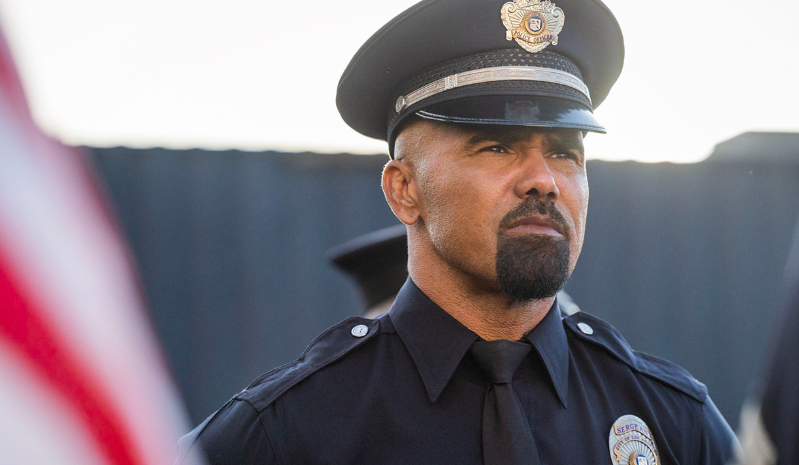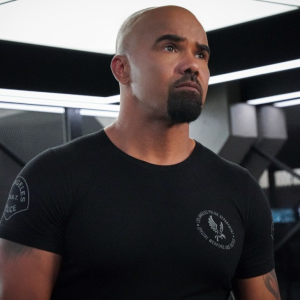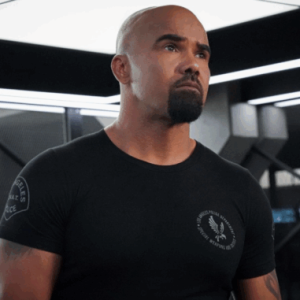The recent decision by CBS to cancel the popular police procedural drama S.W.A.T. for the second time has sent shockwaves through its dedicated fanbase and ignited passionate debate across social media. This abrupt move, despite the show’s consistent strong ratings and a remarkably vocal audience, has led its star and executive producer, Shemar Moore, to voice profound frustration, asserting that the cancellation transcends mere performance metrics. According to Moore, the underlying reasons are far more complex, rooted in “money, optics, and politics.”
The journey of S.W.A.T. on CBS has been a tumultuous one, akin to a high-stakes ride on a rollercoaster. In 2023, the network initially announced the show’s cancellation following its sixth season. However, this decision was met with an unprecedented wave of fan backlash, a digital uprising that saw hashtags trend and social media platforms flooded with pleas to save the series. This fervent display of loyalty ultimately compelled CBS to reverse its stance, granting S.W.A.T. a reprieve in the form of a final, albeit shortened, 13-episode seventh season. While fans celebrated this victory, there was an underlying understanding that the network was preparing for the show’s eventual conclusion. Yet, the hope lingered that strong viewership numbers might once again defy expectations and secure its future.
That hope, however, appears to have been dashed. Shemar Moore, who embodies the character of Sergeant Daniel “Hondo” Harrelson, took to Instagram with an unfiltered, emotional reaction that resonated deeply with viewers. His powerful video message wasn’t just a personal vent; it was a direct challenge to the systemic forces he believes are at play. Moore passionately declared, “It’s not about performance. It’s about money. It’s about optics. It’s about politics. This is not okay.” His words underscored the immense dedication of the entire S.W.A.T. team—from the writers crafting compelling narratives to the camera crew capturing the action. He emphasized how the cancellation undermines years of tireless commitment to a show that not only consistently delivered strong viewership but also broke significant barriers and achieved global recognition.

Moore’s impassioned appeal immediately galvanized the show’s fanbase. Within hours of his video’s release, the hashtag SaveSWATAgain began trending across Twitter, echoing the sentiment that S.W.A.T. deserves a continued life on television. Instagram and TikTok were inundated with tributes, memorable clips, and renewed pleas for another network or streaming platform to rescue the series from its untimely end. This surge of fan activity is a testament to the profound connection viewers have with the show and its characters, highlighting the often-underestimated power of a dedicated audience in the modern media landscape.
The perplexing aspect of this cancellation is the show’s undeniable success in terms of ratings. S.W.A.T. consistently delivered robust numbers during its Friday night slot, a challenging period for network television, and also performed commendably on various streaming platforms. This raises a critical question for industry observers and fans alike: why would a network cancel a show that is demonstrably working and attracting a loyal audience?
Moore’s allusions to “optics and politics” offer a crucial lens through which to understand the situation. S.W.A.T. stands out as one of the few network dramas led by a Black actor, and more significantly, it consistently tackles sensitive and real-life social justice issues. The series has fearlessly delved into complex themes such as police reform, systemic racism, and the critical importance of mental health within law enforcement and society at large. Unlike many conventional police procedurals that often prioritize action over introspection, S.W.A.T. has consistently woven nuanced explorations of these societal challenges into its compelling narratives. Moore’s statement hints at a potential misalignment between these bold, culturally relevant themes and the content strategy that the network currently seeks to promote. This raises uncomfortable, yet vital, questions about how diverse and socially conscious storytelling is valued—or devalued—within the competitive landscape of Hollywood and network television.

Behind the scenes, the whispers of budget cuts and intricate industry politics offer another layer of explanation. Some insiders suggest that S.W.A.T. may have become a significant financial burden for CBS. High production costs, particularly those associated with action-heavy sequences, substantial cast salaries, and the logistics of filming on location in Los Angeles, can accumulate rapidly. In an era where networks are diligently scrutinizing their expenditures and seeking to streamline operations, procedurals that demand extensive budgets often find themselves on the chopping block, irrespective of their popularity or critical reception.
Furthermore, CBS, like many traditional network giants, is navigating a significant strategic pivot. The industry is rapidly shifting towards more cost-effective content, such as reality television, and prioritizing material that can drive subscriptions to their streaming services. Shows like S.W.A.T., with their traditional broadcast model and higher production overheads, might simply no longer align with this evolving corporate strategy, even if they continue to capture audience attention.
Beyond its entertainment value, S.W.A.T. has held a unique and profound significance for many viewers. It distinguishes itself as a rare procedural with a clear sense of purpose. It wasn’t merely about thrilling gunfights or dramatic takedowns; it consistently leaned into cultural relevance, reflecting current social issues and striving to humanize law enforcement in complex, multifaceted ways. For many fans, particularly people of color, the show offered a crucial platform for representation, showcasing a nuanced portrayal of leadership, integrity, and resilience within a system often perceived as broken. Shemar Moore’s depiction of Hondo Harrelson was both powerful and vulnerable, presenting a character that resonated deeply and authentically with a diverse audience—a character who truly mattered.

Shemar Moore has made it clear that his fight for S.W.A.T. is far from over. While he hasn’t outlined specific formal actions, his recent video message ended on a resounding note of hope and unwavering determination. He unequivocally desires for the show to continue its run, whether under the CBS banner or on an entirely new platform. “We’re not dead yet,” he assured his fans, urging them to make their voices heard once again if they truly cherish the show. This sentiment fuels the hope that S.W.A.T. might find a new home. Streaming platforms such as Netflix, Prime Video, or even Paramount+, with their vast reach and appetite for proven content, could be potential saviors. Given its established fanbase and demonstrated success, S.W.A.T. presents a strong candidate for rescue and revival in the streaming ecosystem.
The cancellation of S.W.A.T. offers several critical lessons for the modern television industry. It starkly illustrates that ratings, once the paramount measure of success, are no longer the sole determinant of a show’s longevity. In today’s intricate TV landscape, decisions are increasingly driven by a complex matrix of factors: cost-per-episode, global distribution rights, syndication potential, and overall brand alignment. While Nielsen numbers remain important, they are now just one piece of a much larger, financially driven puzzle.
However, the journey of S.W.A.T. also powerfully underscores that fan power still holds significant sway. The fact that the show was saved once before stands as a compelling testament to the collective influence of a passionate viewership. Whether this remarkable feat can be replicated remains uncertain, but one should never underestimate the determination of Shemar Moore or the unwavering commitment of the S.W.A.T. fanbase.

This cancellation transcends the fate of a single television show. It serves as a stark reflection of larger, unsettling trends permeating the entertainment industry. It highlights the unfortunate reality of diverse shows being axed despite solid performance, raising concerns about the industry’s commitment to inclusive storytelling. It points to networks increasingly opting for “safe” content over bold, groundbreaking narratives that challenge conventions and spark important conversations. And perhaps most significantly, it exemplifies the ongoing, seismic shift from traditional network television models towards a future dominated by streaming services and global syndication—a shift that is fundamentally reshaping how content is produced, distributed, and consumed.
While the future of S.W.A.T. remains uncertain, Shemar Moore’s raw and honest response to its second cancellation is more than just a reaction to a lost job. It is a powerful statement about respect, the crucial importance of representation, and the urgent need to recognize intrinsic value beyond mere dollar signs. Whether the show ultimately finds new life or not, Moore and the dedicated team behind S.W.A.T. have undeniably made an indelible impact that cannot be erased. For now, the future hangs in the balance, but if there’s one enduring lesson that S.W.A.T. has consistently taught its viewers, it is this: never count out the underdog.





